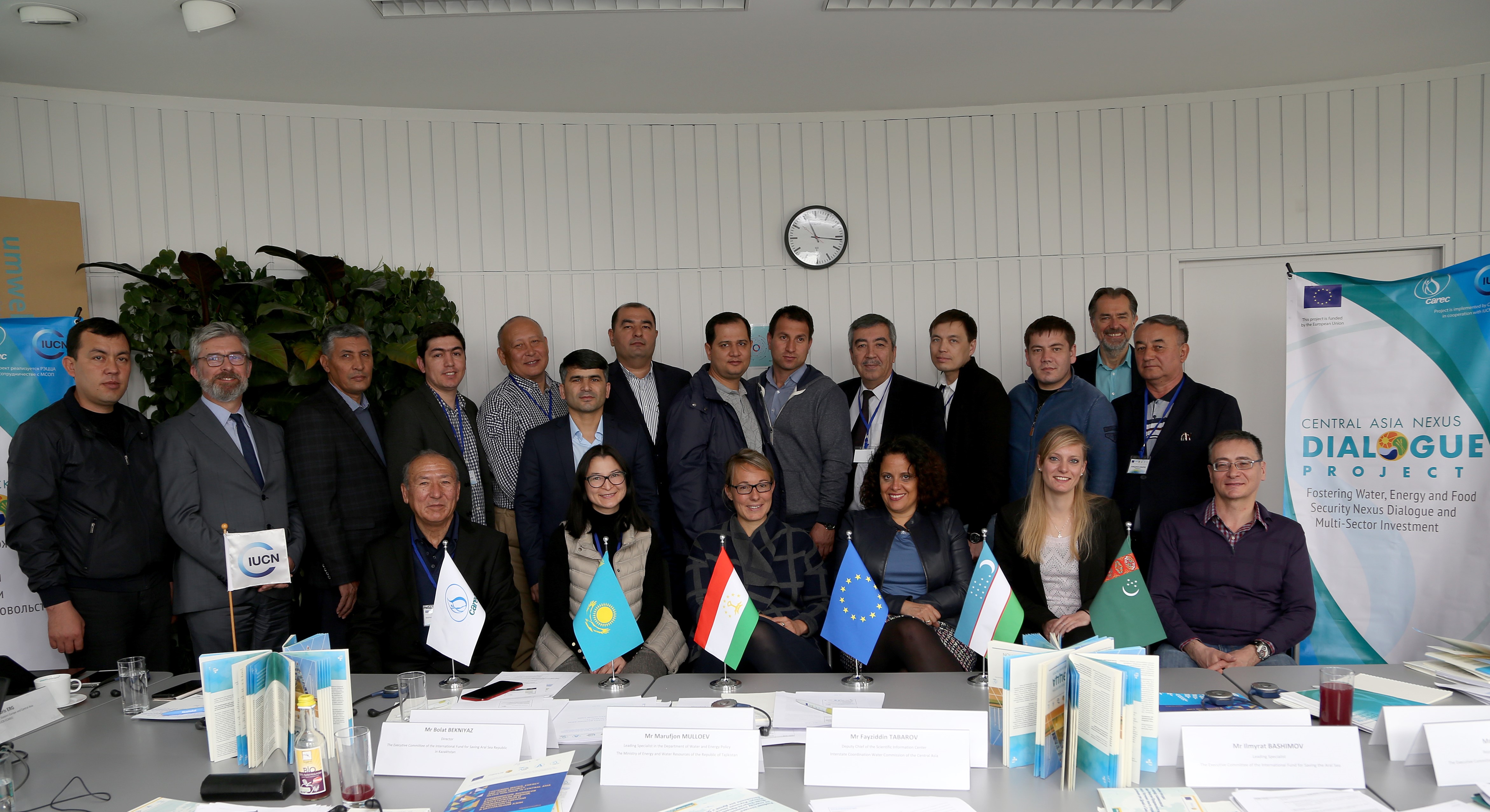VIENNA (AUSTRIA). 15 participants from Central Asian ministries and interstate organizations took part in a training workshop organized by the Regional Environmental Center for Central Asia (CAREC) and the International Union for Conservation of Nature (IUCN) as part of the Study Tour to the Danube and Sava River Commissions on 13-18 May with the financial support of the European Union.
The workshop participants learned from the experiences of other regions, especially Asia and Africa, and gained a better understanding of why Nexus is important for regional cooperation. They took stock of the situation in Central Asia, analyzed key pressures and drivers from political, economic and social perspectives and applied Nexus principles through regional lens.
To provide some practical examples, two guest speakers contributed to the workshop. Nadejda Komendantova from the International Institute for Applied Systems Analysis presented multi-criteria decision analysis as a tool for structuring discussions on trade-offs within the Nexus. Mr Peter Vajda of the Energy Community Secretariat provided insights into the Energy Community’s Dispute Resolution and Negotiation Center and gave examples of how to settle disputes over hydropower developments in a transboundary context.
The participants also developed a draft Nexus Road Map for Central Asia which will be further elaborated in the course of the Study Tour and then presented to the Nexus Project’s Regional Steering Committee in June 2019 in Dushanbe, Tajikistan.
“The multisectoral approach is now getting more recognition worldwide as a useful tool to be applied at best during the planning stage. The training enhanced our knowledge and enabled us to develop the draft Nexus Road Map for our region. Most importantly, the Water-Energy-Food Nexus approach could help us find the optimal trade-offs between the competing sectors to mitigate the consequences of the Aral Sea catastrophe," said Bolat Bekniyaz, Head, Executive Board of the Republic of Kazakhstan of the International Fund for Saving Aral Sea.

The workshop was organized in the framework of the Project "Central Asia Nexus Dialogue Project: Fostering Water, Energy and Food Security Nexus Dialogue and Multi-Sector Investment", which is part of the EU Global Nexus Dialogues Programme. The project is funded by the European Union and implemented by the Regional Environmental Centre of Central Asia (CAREC) in partnership with the International Union for Conservation of Nature (IUCN), and with the support of the Executive Committee of International Fund for Saving the Aral Sea. Phase I will last until December 2019 (total budget: €1.52 million; EU contribution: €1.3 million).

